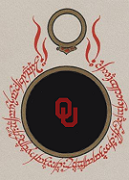|
Pershing posted:Yeah I would appreciate a comparison of the Orthodox and Catholic positions on prayer for the dead and Purgatory 1 Corinthians posted:According to the grace of God given to me, like a skilled master builder I laid a foundation, and another man is building upon it. Let each man take care how he builds upon it. For no other foundation can any one lay than that which is laid, which is Jesus Christ. Now if any one builds on the foundation with gold, silver, precious stones, wood, hay, straw—each man’s work will become manifest; for the Day will disclose it, because it will be revealed with fire, and the fire will test what sort of work each one has done. If the work which any man has built on the foundation survives, he will receive a reward. If any man’s work is burned up, he will suffer loss, though he himself will be saved, but only as through fire. The Catholic Church tends to understand that passage as referring to Purgatory--a purifying fire that prepares one for heaven. Orthodox see it as referring to the final judgment, when sinners and saints alike will have to pass through the River of Fire, and see if it illuminates or burns. This was one of the points of contention at the Council of Ferrara-Florence, which more or less solidified the Schism. St. Mark of Ephesus accused the Catholics of misunderstanding passages like that, and some of St. Gregory of Nyssa's more universalist writing. It's Hades itself, the punishment of the damned before the Resurrection, that can potentially purify them. After the final judgment, of course, that's it; the decision has been made. Prayer for the Dead: In practical effect, there isn't much difference. Catholics and Orthodox can pray for any deceased person privately, and also practice charity on their behalf, and we know from Church Tradition that doing so helps them. Masses and Divine Liturgies also help the dead, but public services can only be offered for the faithful departed. The big difference is mainly the belief/nonbelief in a third afterlife state; Catholic prayers for the deceased might specifically mention helping them through Purgatory. It's generally considered useless to pray for someone in hell, but since we have no way to know who's actually there, I'm not sure it affects anybody's activities too much.
|
|
|
|

|
| # ? Jun 11, 2024 01:09 |
|
This week on Thursday I found an open mic venue in town. The turn out was pretty low. There was me, a guy who came out of curiosity and about five regulars there for the jam night. So I was encouraged to get up first and read the poem by Jeff Foster (posted earlier). I got a big round of applause when I was finished. Some day I think I might write my own poems and read them out! So I enjoyed it anyway.
|
|
|
|
Prurient Squid posted:This week on Thursday I found an open mic venue in town. The turn out was pretty low. There was me, a guy who came out of curiosity and about five regulars there for the jam night. gg!
|
|
|
|
https://www.youtube.com/watch?v=GaRha3H2xFE Also, content warning, it deals with grief. This really went places. I couldn't watch the whole thing in one sitting. drat. Prurient Squid fucked around with this message at 17:16 on Jun 7, 2023 |
|
|
|
Einstein's statement "I believe in Spinoza's God" is enigmatic but I would say it's no more enigmatic than if he'd said "I believe in God" or"I don't believe in God". All statements of thie kind are dependent upon interpretation.
|
|
|
|
How much interpretations you need? AFAIK, Spinoza was an atheist
|
|
|
|
JcDent posted:How much interpretations you need? AFAIK, Spinoza was an atheist Atheist is a wide category and some of the category is deist.
|
|
|
|
One might also believe in God as a cultural character, so to speak, even if you do not hold faith in Him as a specific individual almighty creator.
|
|
|
|
|
Spinoza's Ethics is written as if it was a mathematical treatise. So he's arriving at God from the ground up from logical principles. Whereas revelation is sort of from on high. I think that's what Einstein meant when he invoked Spinoza. I think what he probably meant was "I respect the numinious but I don't approach it from a confessional point of view, the numinous is to be found in contemplation of the cosmos". But obviously it's intentionally open ended.
|
|
|
|
"As regards the philosophy of Spinoza, it is very simple, and on the whole easy to comprehend[...]" - Hegel Are you having a laugh Hegel? e: OK, if you're summing up the whole of Spinoza as "Everything is God" then yeah, it's simple. Prurient Squid fucked around with this message at 18:48 on Jun 13, 2023 |
|
|
|
Prurient Squid posted:OK, if you're summing up the whole of Spinoza as "Everything is God" then yeah, it's simple. I once read somewhere, might have been here, that Everything is God and the reason that we have entropy is because God is dying. I’ve always loved the hard turn that idea takes in the middle.
|
|
|
|
I like what Zevi from Seekers of Unity said about Spinoza and Hegel. Spinoza is difficult, whereas Hegel is obscure. If you put in the work you can kind of figure out Spinoza. With Hegel, maybe, maybe not.
|
|
|
Thirteen Orphans posted:I once read somewhere, might have been here, that Everything is God and the reason that we have entropy is because God is dying. I’ve always loved the hard turn that idea takes in the middle.
|
|
|
|
|
Nessus posted:How does the resurrection play into this? The Lamb - Slain From the Foundation of the World posted:
|
|
|
|
Nessus posted:How does the resurrection play into this? Keromaru5 gives a good reply. I never considered it, to be honest, I just thought it was an interesting pantheist interpretation of why there is “evil.”
|
|
|
|
Keromaru5 posted:I defer to Fr. Stephen Freeman: This is pretty close to the idea of: the event of Jesus as the Christ as the ground of being.
|
|
|
|
It seems tremendously bleak to me but I of course am not starting from the same grounds as y'all.
|
|
|
|
|
Nessus posted:It seems tremendously bleak to me but I of course am not starting from the same grounds as y'all. Yeah, to me at least I can't say someone dying should be at the centre of the universe unless something has gone badly wrong.
|
|
|
|
Well, some faiths (heathenry, hinduism) says we ARE in the age of poo poo going wrong, but that it will eventually resolve itself for good, or at least balance.
|
|
|
|
Right, I mean more that it’s a state sanctioned murder of an innocent preacher. This is centered as the fundamental moment of the cosmos itself. It feels weirdly small even if you want to take it as a prototype of humanity.
|
|
|
|
|
Bear in mind, Fr. Stephen is saying that Pascha--that is, Easter--is what has cosmic significance. It's just that the crucifixion and resurrection can't really be separated. But of course, the central Christian claim is that this itinerant preacher was God Himself, and that he turned that state-sanctioned murder to his own advantage to save humanity. It does have cosmic significance! Like Fr. Stephen says, it reveals a God who empties himself for the sake of his creation. I think modern Christians tend to get more wrapped up in the mechanics of the atonement, whereas the Fathers are more like "God became Man! God lived among us! God died and rose again!" I think it's related to why we Catholics and Orthodox venerate the Virgin Mary: she herself is a special revelation of God. God didn't just become man--the designer of atoms and galaxies let himself be confined to her body for 9 months and let her feed him and clothe him. For me, the smallness, the extent to which God is willing to shrink himself down, is part of the whole beauty of it. Keromaru5 fucked around with this message at 16:53 on Jun 14, 2023 |
|
|
|
That makes a lot more sense to me, but Christs killing seems to be the important thing in Christian theology rather than his teachings. To me, this has always felt backwards even if I can see why his miraculous acts were also important.
|
|
|
|
|
Tias posted:Well, some faiths (heathenry, hinduism) says we ARE in the age of poo poo going wrong, but that it will eventually resolve itself for good, or at least balance. Japanese Buddhism also has this theory. Achieving enlightenment is impossible o our own in such a degenerate age so we must look to Amida Buddha. I'm inclined to agree. I don't see any Buddhas any time soon. But, as a book I really like said, maybe that's just egotism - our refusal to believe sanctity and holiness could occur in our midst. https://www.youtube.com/watch?v=lo6T0J1wxFA
|
|
|
|
Impossible to open your eyes without seeing something holy.
|
|
|
|
Nessus posted:That makes a lot more sense to me, but Christs killing seems to be the important thing in Christian theology rather than his teachings. To me, this has always felt backwards even if I can see why his miraculous acts were also important. Without his death and resurrection, Jesus is just a good guy with nice things to say, like thousands of others in history. What he had to say has deep meaning only because of his death and resurrection.
|
|
|
|
Nessus posted:That makes a lot more sense to me, but Christs killing seems to be the important thing in Christian theology rather than his teachings. To me, this has always felt backwards even if I can see why his miraculous acts were also important. The important thing about Christ is that he is God and also fully man and being man means that he must really die; if he does not then he is not fully man. He then rises again from the dead and in doing so fundamentally changes reality itself. In Christianity Christ is not just some teacher who tells us to be nice to each other: he is the union of God and man in one place and at one time (as it must be because humans are particular and always exist in one place at one time); the simple fact of his life and death literally changes and completes reality outside of any of his teachings. Lots of people can teach us to live life well but only the birth, death, and resurrection of God-and-man can change the nature of reality and fully reconcile God and man. What is most important about Christ is not what he taught but who he is. A_Bluenoser fucked around with this message at 17:28 on Jun 14, 2023 |
|
|
|
A_Bluenoser posted:The important thing about Christ is that he is God and also fully man and being man means that he must really die; if he does not then he is not fully man. He then rises again from the dead and in doing so fundamentally changes reality itself. How did reality change? Other than noone had ever risen from the dead before I guess?
|
|
|
|
Killingyouguy! posted:How did reality change? Other than noone had ever risen from the dead before I guess? Antiquity was full of credible stories of people performing miracles. Raising oneself* from the dead was a new one. That was one way converts were made. "Our Lord was quite the miracle worker." "Yeah yeah, what else is new? Lots of holy men running around healing the ill." "Any of those holy men ever come back from the dead?" "Oh, uh, no...drat. Tell me more about this Jesus of Nazareth." *Don't want to get into the theological weeds of this, just trying to differentiate it from a person raising others from the dead.
|
|
|
|
It seems strange to me, I suppose. If he was truly God then he could have done it at any time. I will not dispute it as a great wonder, and I understand much of Christian thought is about reconciling these facts as presented. To me it is strange that his teachings are so disposable. Did not God make the thousands of other people too? If the words are only heeded by many because of their direct personal association with God, this seems to speak paradoxically poorly of those who needed that level of underlining to take even some heed. 
|
|
|
|
|
Killingyouguy! posted:How did reality change? Other than noone had ever risen from the dead before I guess? Without Christ no-one can fully enter the life of God in the Kingdom of God (go to heaven crudly put) because there is a fundamental breach between God and man. God-become-man takes humanity into the Godhead and thus opens the path for humanity to fully enter into the Kingdom of God. This is a change in the very nature of reality. Note also that Christ does not promise us Eden (the world made perfect) but rather full participation in the life of God which is very different and much, much more.
|
|
|
|
A_Bluenoser posted:Without Christ no-one can fully enter the life of God in the Kingdom of God (go to heaven crudly put) because there is a fundamental breach between God and man. God-become-man takes humanity into the Godhead and thus opens the path for humanity to fully enter into the Kingdom of God. This is a change in the very nature of reality. Why not though? If he's God why couldn't he decide to let humanity in without Christ involved?
|
|
|
|
Nessus posted:If the words are only heeded by many because of their direct personal association with God, this seems to speak paradoxically poorly of those who needed that level of underlining to take even some heed. Tbf most religions seem to have a pretty poor view of people in general
|
|
|
Killingyouguy! posted:Tbf most religions seem to have a pretty poor view of people in general
|
|
|
|
|
Nessus posted:It seems strange to me, I suppose. If he was truly God then he could have done it at any time. I will not dispute it as a great wonder, and I understand much of Christian thought is about reconciling these facts as presented. The teachings of Christ are in no way disposable, perish the thought! "If ye love me then keep my commandments" etc. But they are important because of who Christ was and because Christ gave them we must heed them as best we are able (and confess when we cannot rather than try to justify ourselves). And yes, God could have become man anytime, anywhere but it would always have been once and in one place because all humans exist in this world once and in one place. If it did not happen once and in one place God would not have been fully man! Christians believe this once and in one place was Jesus of Nazareth and that is a definitive feature of what makes us Christian.
|
|
|
A_Bluenoser posted:The teachings of Christ are in no way disposable, perish the thought! "If ye love me then keep my commandments" etc. But they are important because of who Christ was and because Christ gave them we must heed them as best we are able (and confess when we cannot rather than try to justify ourselves). Or when it’s about Paul’s post history.
|
|
|
|
|
Nessus posted:It seems strange to me, I suppose. If he was truly God then he could have done it at any time. I will not dispute it as a great wonder, and I understand much of Christian thought is about reconciling these facts as presented. This sounds very familiar: Every time I look at you, I don't understand Why you let the things you did get so out of hand You'd have managed better if you'd had it planned Why'd you choose such a backward time and such a strange land? If you'd come today, you would have reached a whole nation Israel in 4 BC had no mass communication Jesus Christ, Jesus Christ Who are you? What have you sacrificed? Tell me what you think about your friends at the top Now who'd you think, besides yourself, was the pick of the crop? Buddha, was he where it's at? Is he where you are? Could Mohamed move a mountain, or was that just PR? Did you mean to die like that? Was that a mistake, or Did you know your messy death would be a record-breaker? Jesus Christ, Jesus Christ Who are you? What have you sacrificed?
|
|
|
|
Killingyouguy! posted:Why not though? If he's God why couldn't he decide to let humanity in without Christ involved? It is not about "letting in" versus "keeping out"; it is not about punishment and reward: Rather human nature and divine nature are not compatible with each other until God becomes man, thus taking human nature into the Godhead and reconciling it with the divine nature (and the exact wording there may skirt heresy since I am phone-posting on break and have not gone over it with a fine-tooth comb). Note that this reconciliation goes beyond Eden: we don't recover our pre-fallen state but rather go completely beyond it. As Augustin said: we go from a state of being able not to sin to a state of being unable not to sin to a state of being unable to sin. As to why God did it exactly this way: I don't have a complete answer but I expect it has to do with Love: God Loves his creation and what way to Love it more than to actually become part of it and in so doing bring it into himself. That is just my thought.
|
|
|
|
Unrelated: https://twitter.com/XiranJayZhao/status/1668283814056194048?s=20
|
|
|
|
|
Nessus posted:It seems strange to me, I suppose. If he was truly God then he could have done it at any time. I will not dispute it as a great wonder, and I understand much of Christian thought is about reconciling these facts as presented. I mean, he could have just cleared the slate without dying, or united us to himself without becoming incarnate, but what would we actually learn from it? How would he show that to us? Instead, he chose to do it by experiencing human life and death, then demonstrating his power over death in the flesh, and taking human nature to heaven. It's proof of the New Covenant; just like how the Passover and Exodus bolster God's commandments in the Torah: "I am the Lord your God, who brought you out of the land of Egypt...: you shall have no other gods before me." "This is how far I'm willing to go for you." And if anything, the crucifixion and resurrection are Jesus putting his teachings directly into action. "Blessed are you when you are persecuted" is right there in the Beatitudes after "blessed are the poor in spirit" and "blessed are the meek," and he's constantly telling his disciples that following him means suffering and death. I'd say his core teaching could be summed up as "If you want to be risen from the dead into eternal glory, leave your worldly attachments behind... including your life." Or like the sign at a monastery on Mt. Athos says: "If you die before you die, you won't die when you die."
|
|
|
|

|
| # ? Jun 11, 2024 01:09 |
|
Keromaru5 posted:I think the best explanation to why he did it this way is: this is how he wanted to. I agree, very well put!
|
|
|





















